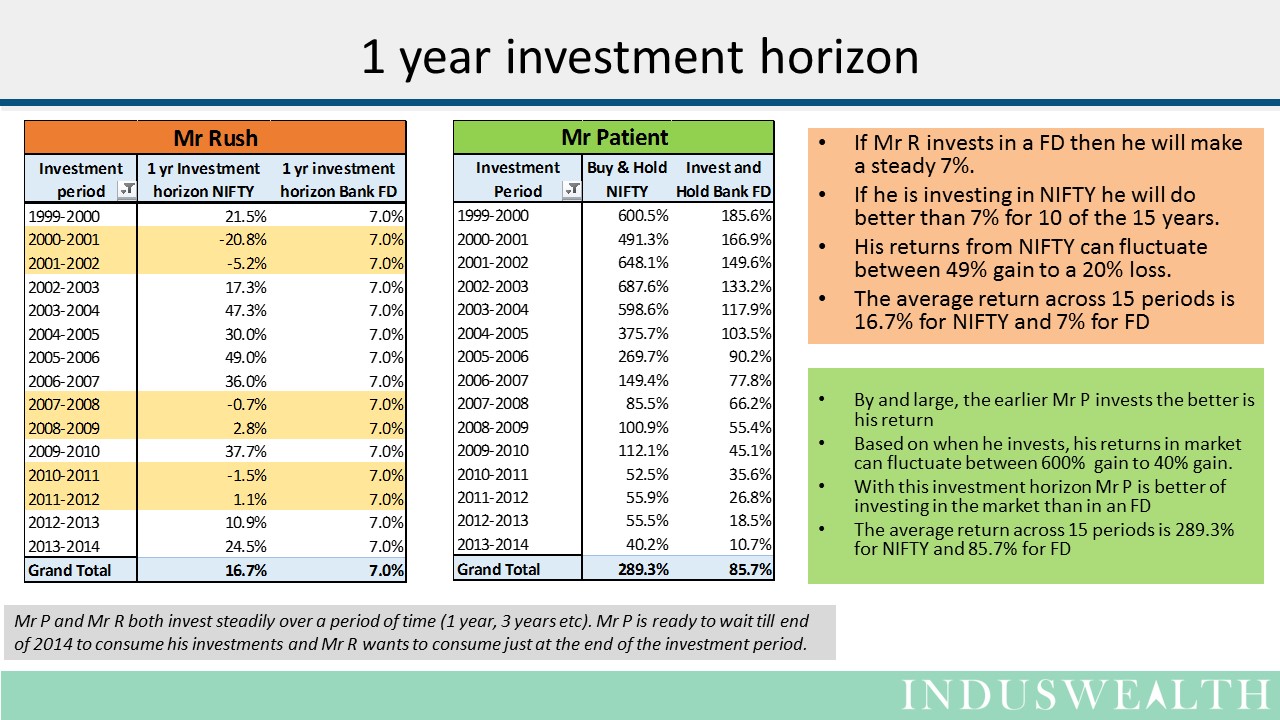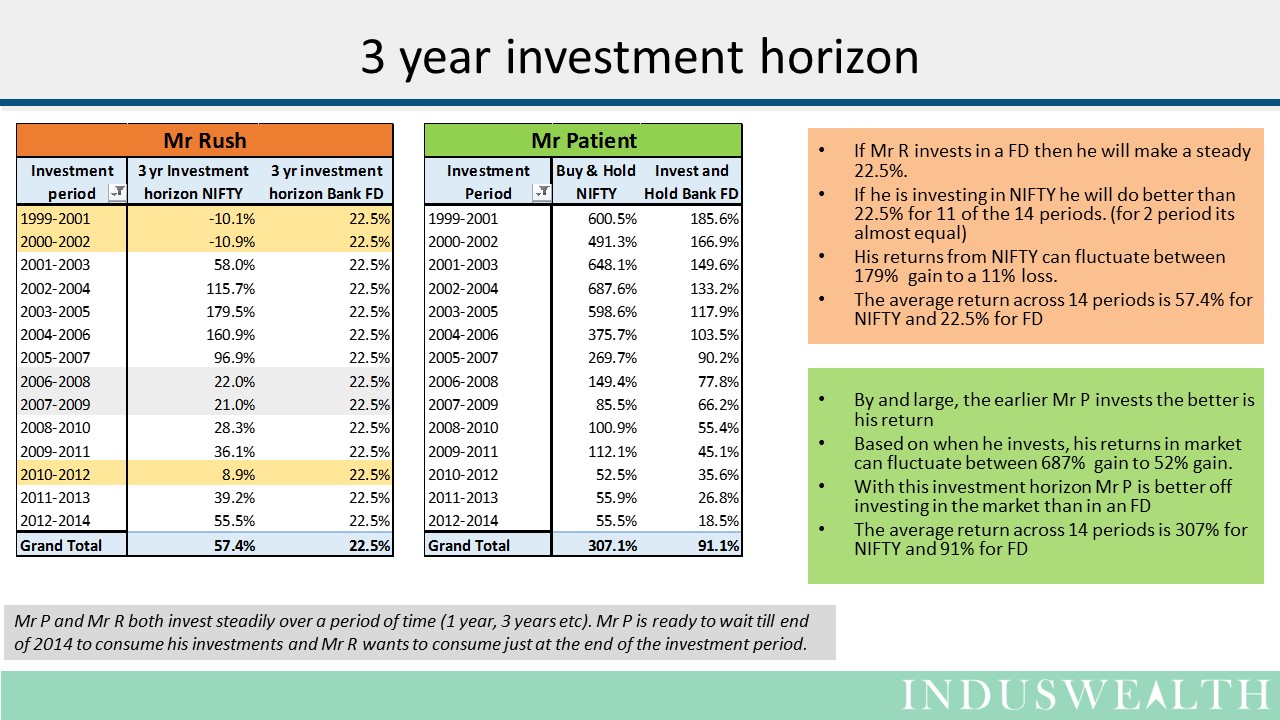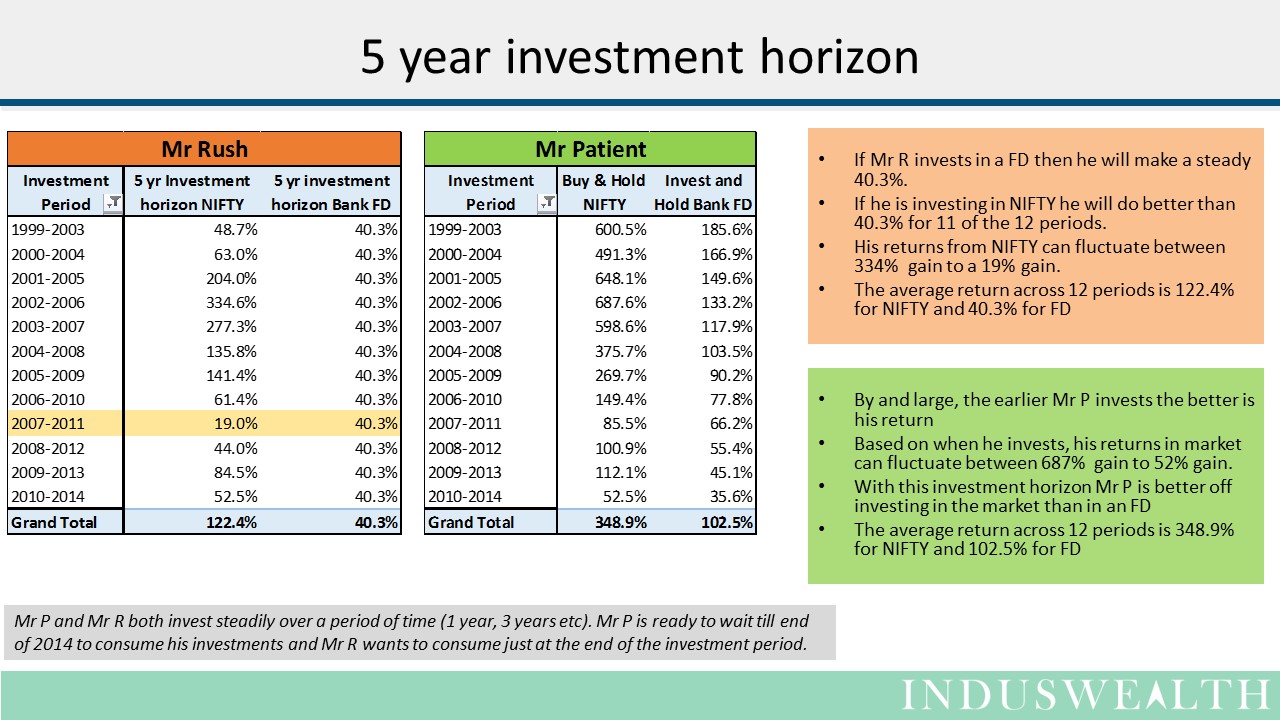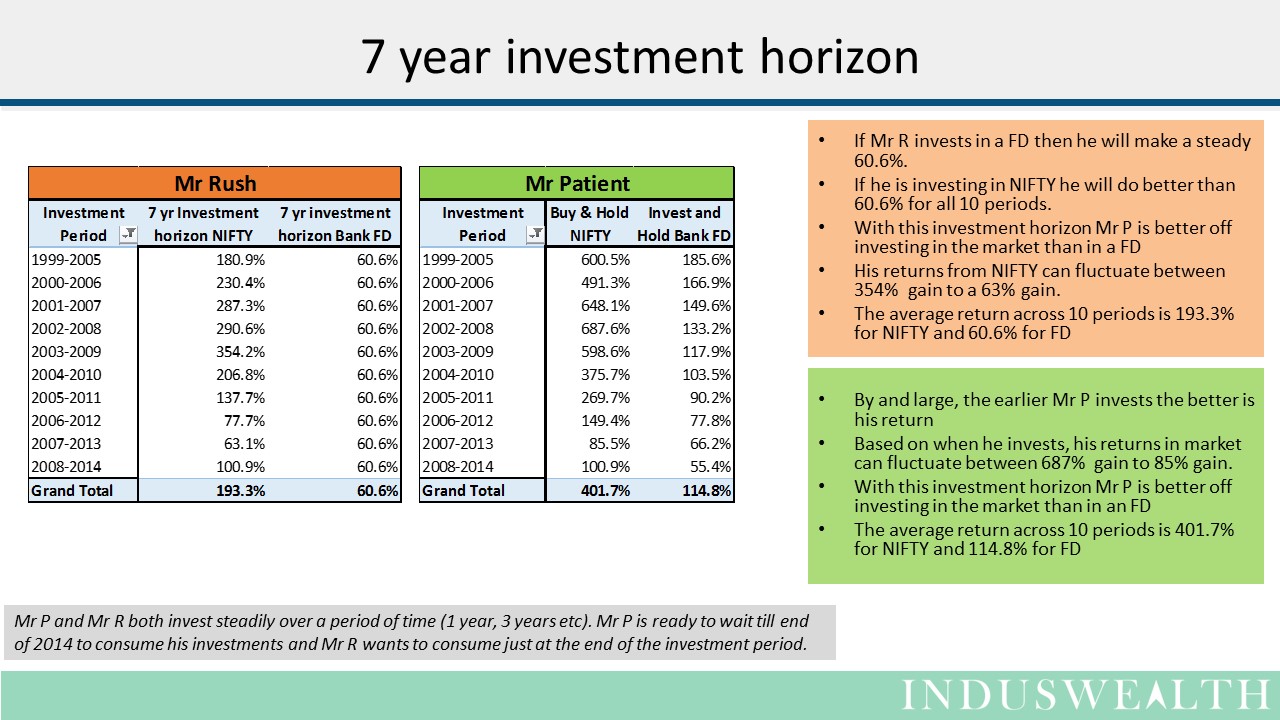Many treat the markets as a collection engine – i.e., they expect that the moment they invest the universe with contrive to make sure that their investment value will immediately appreciate and they will make a lot of money. They don’t feel they are investing but feel that they are putting money in the market to collect more of it right away!!!
Just like a person who drills at random has a low chance of finding oil consistently – a person who invests without trying to understand how and why the markets work will have a low chance of making good returns.
Markets inherently reflect human endeavour to do better – one of the measures of this endeavour is wealth. Markets represent the wealth being created by various industrialists who working to create value. In the long run value is being created by initiative, innovation, and hard work. As time progresses humanity is doing better (at least in terms of material things), therefore wealth is increasing. This increase in wealth is reflected in market valuation – hence markets go up in the long run.
Markets represent sum total of all the industry. Although it is very tough to invest in the entire market, one would not be far off if one invested in an Index fund or a diversified portfolio of carefully selected stocks.
Markets are inherently volatile, especially in the short term. As Warren Buffett says it succinctly “Markets in the short run are voting machines and in the long run are weighing machines”. In the short run markets represent the uncertainty of wealth creation especially by individual firms, hence the volatility.
Markets in the short run also reflect human emotions – worry, panic, or euphoria, these automatically translate into short term volatility. The small change in interest rate, announcements by government/central bank, or a crisis (like today’s Greek crisis, or Enron & Satyam debacles) may seem too big today – but after a few years they may not seem as such a big deal as it felt when we were in the midst of it.
Once there is a significant distance (in terms of time) between the event and individuals, the problems that seemed serious and unsurmountable in the short run gain a better perspective – hence patience is the key for prudent investors. Quoting from Arnold H. Glasow – “The key to everything is patience. You get the chicken by hatching the egg, not by smashing it.”
We wanted to look in the recent past and analyse the data to really see what patience means in practical terms. We analysed 15 years from 1999 to 2014. We will look at 2 investors – Mr Patient (Mr P) and Mr Rush (Mr R). During this decade and a half, Mr P and Mr R both invest steadily over a period of time (1 year, 3 years etc). Mr P is ready to wait till end of 2014 to consume his investments and Mr R wants to consume just at the end of the investment period. We will also analyse returns from 2 investment options – Index (NIFTY) and Bank Fixed deposit (7% post tax) for the period 1999 to 2015.
With a 1 year “investment and holding” horizon – though the average return from NIFTY is 16.7%, there is 1 in 3 chance that the person will lose money. We believe that investing with a 1 year “investment and holding” horizon is not prudent. On the contrary if one is ready buy over a 1 year horizon and hold for over a long term then the timing of investment is not relevant, market will tend to beat the bank FD rate – the average return being 289%.
With a 3 year “investment and holding” horizon – though the average return from NIFTY is 57.4%, there is 1 in 7 chance that the person will lose money. We believe that investing with a 3 year “investment and holding” horizon is not prudent. On the contrary if one is ready buy over a 3 year horizon and hold for over a long term then the timing of investment is not relevant, market will tend to beat the bank FD rate – the average return being 307%.
With a 5 year “investment and holding” horizon – though the average return from NIFTY is 122.4%, there is 1 in 12 chance that the person will do better than an FD. We believe that investing with a 5 year “investment and holding” horizon is a reasonable risk to take. On the contrary if one is ready buy over a 5 year horizon and hold for over a long term then the timing of investment is not relevant, market will tend to beat the bank FD rate – the average return being 349%.
With a 7 year “investment and holding” horizon – the average return from NIFTY is 193.3%, there is very good chance that the person will do better than an FD. We believe that investing with a 7 year “investment and holding” horizon is prudent On the contrary if one is ready buy over a 7 year horizon and hold for over a long term then the timing of investment is not relevant, market will tend to beat the bank FD rate – the average return being 402%.
In summary, the longer the investment horizon and the longer the period one is ready to hold, the better are the returns for people investing in the markets. Investing in the markets is not for people whose horizon is short or who don’t have the stomach for short term volatility.
We want to end with Jean-Jacques Rousseau’s quote “Patience is bitter, but its fruit is sweet”.
Happy investing….



